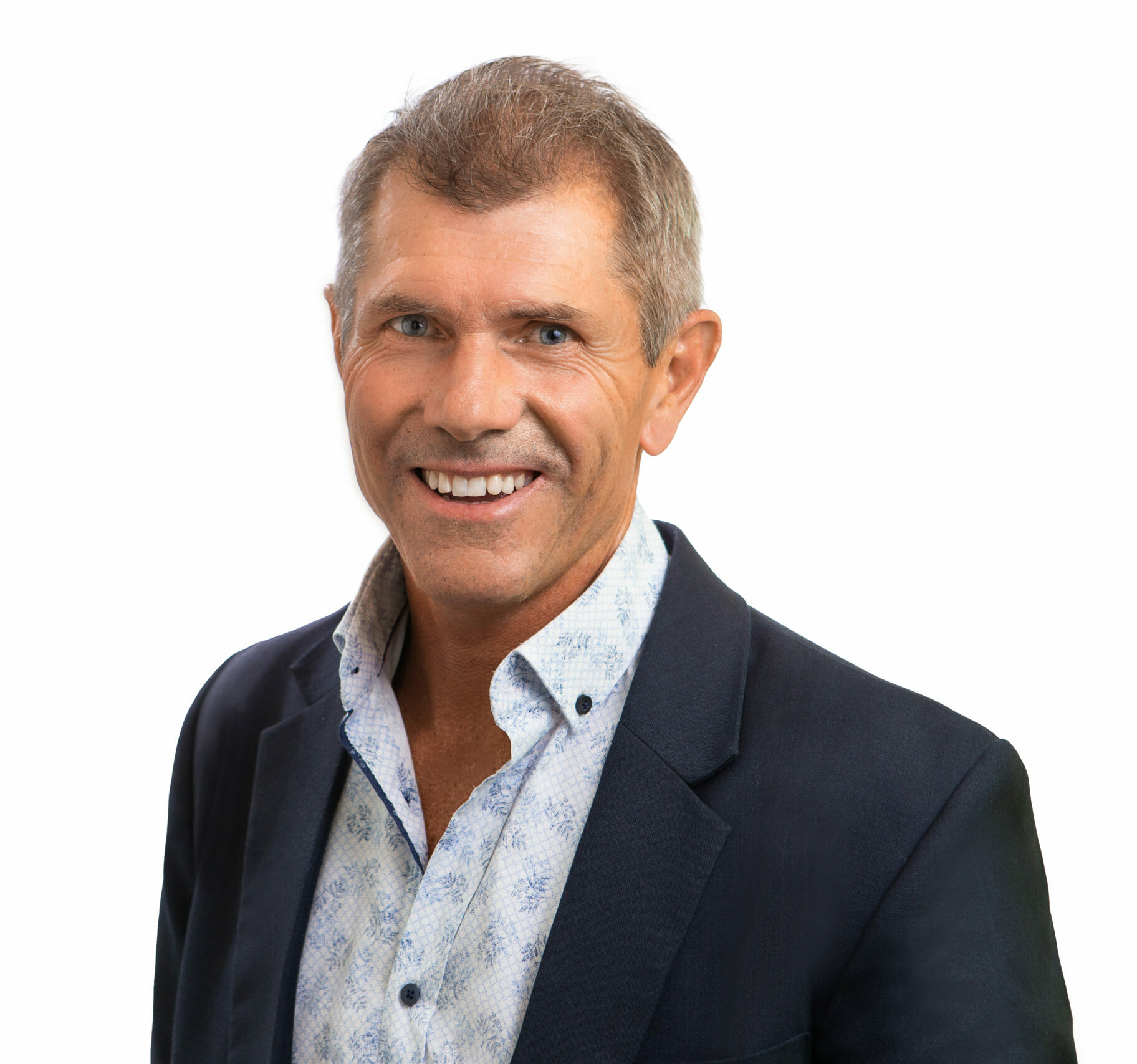
Are you thriving, or merely surviving?
Steople is partnering with Hermann New Zealand to host New Zealand Leaders in Auckland on Wednesday, 26 July, joined by Tilly Liebenberg, People and Culture Manager at Pie Funds.
Hayden Fricke, Managing Director of Steople, will be sharing his learnings on leadership and wellbeing in his professional capacity as a psychologist and key strategic adviser to CEO’s, executives and board members.
Hayden will also be sharing examples and stories of how he has incorporated Whole Brain® Thinking in his journey, and extracts and anecdotes from his recently launched book – ‘Leaders, Do You Have Your Sh*t Together?‘
This event is open to anyone invested in leadership and wellbeing. Seats are strictly limited – if you are interested in attending this in-person event, register your interest: https://zfrmz.com/l247srlzOJWc0KsLA9Jk
Why is it crucial for leaders to take care of their own wellbeing first?
Leaders who are just surviving won’t have the capacity, mentally, physically and emotionally to enable those they lead to thrive. Essentially, you are not going to be able to effectively lead others if you can’t help yourself. I was once coaching a CEO of a large financial services company and he had been in the role for only 3 weeks. It was his first CEO role and he really wanted to do well. He turned up to his first coaching session and told me that he had just separated from his wife. It was very traumatic. They had 2 young children to take care of and many other challenges and yet he had to turn up and play a major role in running a large business. Given this situation, how could he take care of himself first and successfully lead this organisation? The challenges he was facing in his personal life undoubtedly impacted his ability to shine in his first role as CEO.
Another CEO I coached, after about 3 sessions, started our session by saying “my wife thinks I’m lying to you”. I said, “what do you mean?” He went on to explain that his wife thought he was suffering from depression. The point his wife was making was that he was not being honest with himself. He was running a large insurance company. Can you imagine trying to successfully drive high performance and show up positively every day when you’re feeling deeply depressed? After a long conversation about this, we agreed that he was not suffering from clinical depression, but rather he was deeply unhappy. So, we worked on this to help him move from this state to one that was thriving and flourishing.
Yet another CEO revealed to me that she was not sleeping well. In fact, she was only getting about 3 hours sleep each night. She was waking up at about 2 or 3am and was unable to get back to sleep. This had been going on for many months. The definition of insomnia is when someone struggles to get enough sleep for at least 3 weeks in a row. The research shows that this has a similar impact on cognitive capacity and decision making as having a 0.05 blood alcohol content. So, of course we changed the focus of our leadership coaching and spent time on helping my coachee to find ways to sleep better and longer. Once we achieved this, we focussed back on leadership and performance.
The above true stories are a few examples of the direct connection between a leader’s wellbeing and their ability to lead others. Let’s pause for a moment and define wellbeing before going any further. Health and wellbeing mean different things to different people. I like the definition provided by Dodge, Daly, Huyton and Sanders (2012): Wellbeing is the delicate balancing act between an individual’s social, emotional, psychological and physical assets (resources) and the liabilities (challenges) that they are facing in life. When individuals have more challenges than resources, their wellbeing dips.
This shows that wellbeing is not static but changes with life events. A further definition is that wellbeing includes physical, psychological, emotional and social wellbeing.
There are many other aspects of a leader’s performance that are impacted by physical wellbeing factors. Diet for example – a Deakin University study by Dr Felice Jacka showed that “we have confirmed the relationship between the quality of people’s diets and their risk for depression and anxiety disorders”. There is also a positive correlation between diet and cognitive capacity as well as someone’s mood. These factors can inhibit or enhance performance. Alcohol – the topic of alcohol is complex, particularly in a western culture where it is socially highly desirable to have a drink with friends. However, putting the potential social benefits of drinking aside for a moment, drinking more than the standard guidelines (roughly 10 standards drinks per week) can lead to diabetes, weight gain, brain damage or heart issues. It can also lead to social problems if not controlled. Each of these possible risks clearly impact a leader’s performance and their ability to effectively lead others. The connection between exercise and performance is also clear. The guidelines for the right amount of exercise vary somewhat globally but some guidelines suggest at least 30 minutes per day of mild to moderate activity. There is a strong link in the research between the mind and the body. A person who is fit is more likely to have a more positive mindset, which links directly to higher performance.
What about mental and emotional wellbeing? Mental or psychological wellbeing includes being satisfied with one’s own life, having positive relationships with others, being good at managing the responsibilities of daily life and even liking yourself. Emotional wellbeing includes happiness, the ability to produce positive emotions, moods and feelings; adapting when confronted with challenges; and showing resilience. Leaders have to be able to cope with a wide variety of stressors. They may have back to back meetings, feel overwhelmed with the amount of activity they need to manage, and they may not feel that they can find time to relax and recover from this stress. If they don’t make time to take care of themselves, they are likely to burnout. Professor Michael Leiter has conducted over 25 years of research into burnout. He explains that burnout is when people feel exhausted and their energy has been depleted; it leads to feelings of negativity and cynicism and ultimately to reduced professional efficacy.
Finally, there is Social wellbeing. This is something that is often not discussed. Social wellbeing includes feeling part of a community; a strong sense of belonging and contributing to society; having a core group of friends that you love and trust and can call upon any time. Some research has shown that this is possibly the most important factor that contributes to or reduces overall wellbeing. We clearly noticed during COVID lockdowns that many people felt lonely and isolated, which in turn, had a huge negative impact on their wellbeing, sometimes leading to anxiety and depression.
What to do to manage your wellbeing?
I don’t think anyone would be surprised by the points above. The research is pretty clear. However, many people fail to take care of themselves and their wellbeing. Why? Psychologists call this the knowing-doing gap – that is, we know we should take care of our wellbeing, but we don’t. Just because we know something, doesn’t mean we will do it. This is all about habits. Bad habits are just as easy to develop as good habits. However, changing our habits is extremely hard to do. There are many barriers. Sometimes these barriers are external to ourselves, such as the social norms of the society and community we live within; or internal to ourselves, such as our own mental and emotional capacity to change, including the tools we have learned over our lifetime.
Whilst this article does not go into these elements, the starting point to enhancing your own wellbeing is to believe this is critically important as leaders. We must understand why this deserves our focus and attention. We must want to make positive changes because we truly believe in the crucial nature of wellbeing in our lives and only then can we begin. Once we have the desire and motivation to change ourselves to enhance our wellbeing, first we need to be highly conscious of the social norms of the society, community and organisation that we belong to and seek to minimise the barriers they create. Then we need to turn our attention inwards and develop a series of tools and tactics over many years to build our mental and emotional capabilities. It is only through this process that you will learn to create a thriving and flourishing life for yourself. Once you have done this as a leader, you will be able to effectively take care of those you lead. As they say during the safety briefing on planes, “first put on your own mask, then help others”.


